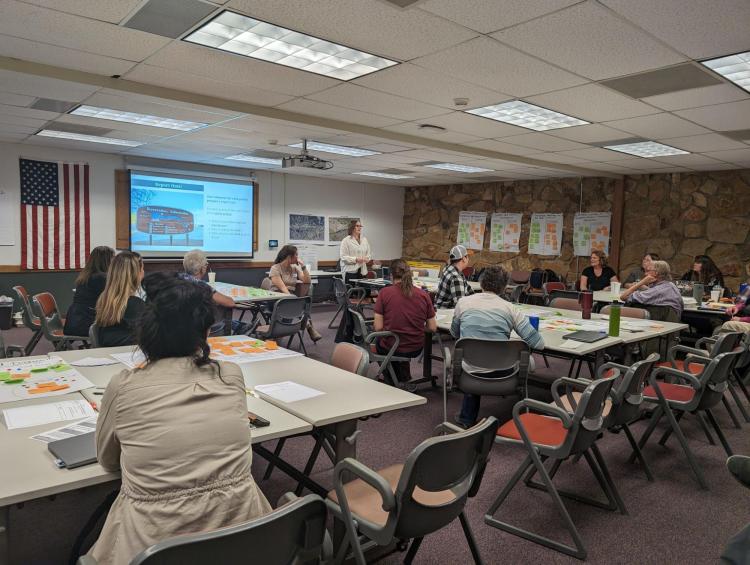Stakeholder Engagement & Facilitation Pathway
What is a Pathway?
A pathway is a suite of courses that provides students with recommended skills, knowledge, and tools for a specific industry or career. This is not a specialization. Pathways can help students upon graduation when applying for jobs by calling attention to the relevant coursework they have undertaken in this space.

Students are not required to take all courses within the SEFP. Rather, they are welcome to choose those classes that are most relevant to them, so long as they take at least one Foundational Theory course and one Practice & Skills course. Four courses in total (12 credits) must be taken from the list below to complete the SEFP. To learn more about the SEFP, please feel free to reach out to the MENV Admissions team at MENVAdmissions@colorado.edu.
Career Paths
MENV students obtain a variety of jobs post graduation. SEF is a skill required in most sustainability jobs, even if not explicitly stated in the title. Below is a small list of roles associated with this Pathway. You can see our sample list of Alumni Job Titles here.
- Sustainability Specialist for local government
- Community Consultant
- Partnership Coordinator
- Project Manager
- Stakeholder Officer
Capstone Project Examples
- 2024 - CAP Management
- 2023 - CPW & OREC
- 2022 - NREL
- 2021 - Boulder Watershed Collective

